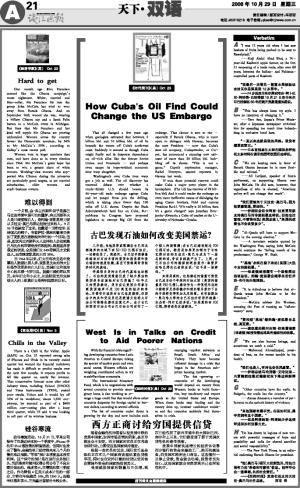That all changed a few years ago when geologists estimated that between 5 billion bbl. and 10 billion bbl. of oil lie beneath the waters off Cuba's northwest coast. Suddenly it seemed as though Cuba might finally end its desperate dependence on oil-rich allies like the former Soviet Union and Venezuela — and perhaps even escape its impoverished economic time warp altogether.
Washington's own Cuba time warp got a jolt as well. The oil discovery has renewed debate over whether a crude-thirsty U.S. should loosen its 46-year-old trade embargo against Cuba and let yanqui firms join the drilling, which is taking place fewer than 100 miles off U.S. shores. Despite the Bush Administration's hard line on Cuba, Republicans in Congress have proposed legislation to exempt Big Oil from the embargo. That clamor is sure to rise — especially if Barack Obama, who is more open to dialogue with Havana, becomes the next President — now that Cuba's state oil company, Cubapetroleo, or Cupet, has announced a stunning new estimate of more than 20 billion bbl. bubbling off its shores. "This is not a game," Cupet's exploration manager, Rafael Tenreyro, assured reporters in Havana last week.
If true, those potential reserves could make Cuba a major petro player in the hemisphere. (The U.S. has reserves of 29 billion bbl.) And it could render the embargo an even more ineffective means of dislodging the aging Castro brothers, Fidel and current President Raúl. "If it really is 20 billion, then it's a game changer," says Jonathan Benjamin-Alvarado, a Cuba oil analyst at the University of Nebraska-Omaha.

